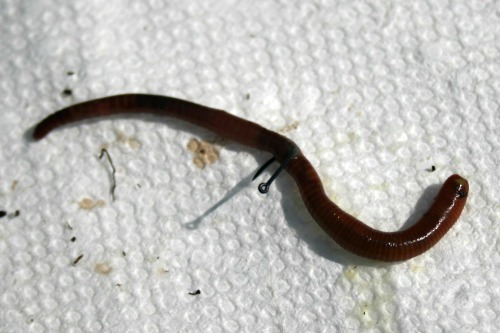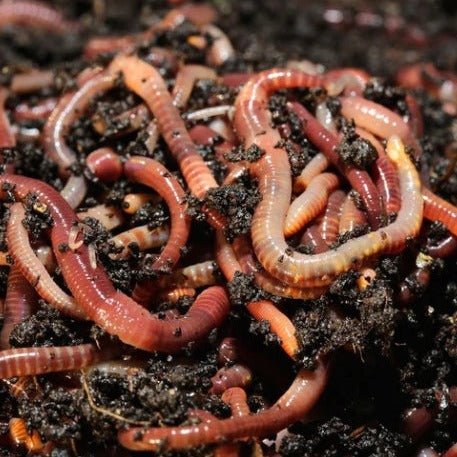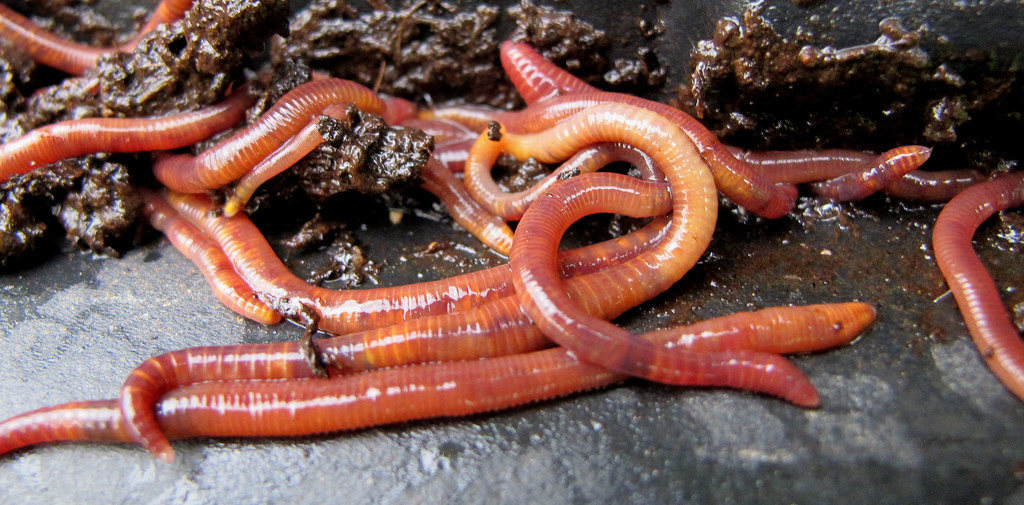Red Wiggler Express: A Trusted Source for Fresh Worms and Bait
Red Wiggler Express: A Trusted Source for Fresh Worms and Bait
Blog Article
Just How Red Wigglers Can Transform Your Composting Experience
The assimilation of red wigglers into composting techniques offers a transformative strategy to lose monitoring and soil enrichment. These microorganisms not just speed up the disintegration process yet also create nutrient-dense vermicompost that boosts soil wellness and fertility. Their versatility to numerous environments makes them an appropriate alternative for both novice and skilled composters alike. Recognizing the details requirements and benefits connected with keeping a growing worm populace is critical for optimizing their potential. What techniques can one utilize to make sure an effective vermicomposting experience?
Benefits of Red Wigglers
Red wigglers, scientifically referred to as Eisenia fetida, are a cornerstone of efficient composting systems due to their exceptional capacity to disintegrate natural matter effectively. These worms master transforming kitchen scraps, yard waste, and other organic materials into nutrient-rich compost, frequently referred to as worm castings. Lake Hickory Bait. This process not only minimizes land fill waste yet also adds to sustainable horticulture methods
One of the key advantages of red wigglers is their high reproduction rate, allowing them to occupy a composting environment quickly. This quick reproduction improves decay rates, resulting in faster garden compost manufacturing. In addition, red wigglers flourish in a varied series of problems, making them versatile to numerous composting arrangements.

Setting Up Your Worm Bin
(Hickory NC Worms For Sale)To produce an efficient worm bin for composting, careful focus has to be provided to its design and setting. A suitable worm bin need to be constructed of materials that are resilient yet enable required air movement, such as plastic or wood. The size of the container can differ, but a volume of about 1 square foot per pound of worms is a great beginning point.
Make sure that the container has drainage holes to avoid water accumulation, which can cause anaerobic problems detrimental to the worms. Furthermore, including ventilation openings will certainly assist maintain appropriate moisture levels and oxygen circulation.
Next, it is necessary to provide bed linens for the worms, which can consist of shredded paper, cardboard, or coconut coir. This bedding not just supplies a habitat for the worms yet additionally aids in moisture retention.
Setting the worm container in a location that preserves a temperature series of 55-77 ° F(13-25 ° C) to maximize worm activity. Prevent putting the container in direct sunshine or severe temperatures. By adhering to these guidelines, you can produce a favorable setting for red wigglers, improving the efficiency of your composting procedure.
What to Feed Your Worms

(Charlotte NC Worms For Sale)Red wigglers specifically take pleasure in soft, moist see foods like watermelon skins, cucumber peels, and banana peels. Nevertheless, it is crucial to avoid feeding them citrus fruits, onions, and garlic, as these can be harmful to their health. In addition, cooked foods, dairy items, and meat must be strictly avoided, as they can bring about odors and bring in parasites.
To preserve optimal conditions, it's a good idea to chop bigger scraps into smaller sized pieces, promoting quicker decay. Start by presenting small quantities of food and check the worms' consumption rate; readjust appropriately to stop overfeeding, which can produce an unhealthy environment. Providing a regular feeding schedule will assist keep your worm populace flourishing while boosting the general efficiency of your composting initiatives. By understanding what to feed your worms, you lay the foundation for an effective and sustainable composting experience.
Preserving a Healthy And Balanced Environment
Developing a thriving composting atmosphere for red wigglers requires attention to their habitat, as it directly influences their wellness and productivity. The perfect environment should maintain a well balanced dampness level, usually in between 60-70%. Too much moisture can result in anaerobic conditions, while inadequate wetness might dry out the worms.

The bed linen material in the compost should vary and shredded, including products like cardboard, paper, and coconut coir. This not just supplies a comfortable environment yet likewise works as a food source. Lake Hickory Bait. On a regular basis inspecting for odors or indications of insects can help recognize prospective issues before they rise
Lastly, keeping a balanced pH level, preferably in between 6 and 7, guarantees a conducive environment for red wigglers, fostering their capacity to process organic issue successfully. By resolving these elements, you can create a lasting and productive composting community.
Harvesting and Using Garden Compost
Gathering garden compost from a worm bin is a gratifying procedure that transforms natural waste into nutrient-rich product for gardens and plants. When the composting cycle is complete, normally after 8-12 weeks, it's time to gather the vermicompost. The initial step includes dividing the red wigglers from the ended up compost. This can be done utilizing methods such as the "light" method, where worms are drawn in to light and can be scooped far from the top layers, or by relocating the compost away of the bin and adding fresh bed linens to the opposite side, motivating the worms to migrate.
When the worms are gotten rid of, the continuing to be garden compost can be filtered to remove any kind of bigger bits or undecomposed product. This abundant garden compost can be used directly to garden beds, combined right into potting dirt, or utilized as a top dressing for potted plants.
Conclusion
Including red wigglers right into composting practices significantly boosts the decay process and contributes to the manufacturing of nutrient-rich vermicompost. The resulting worm castings boost soil framework, fertility, and microbial activity, eventually promoting healthier plant development.
Report this page